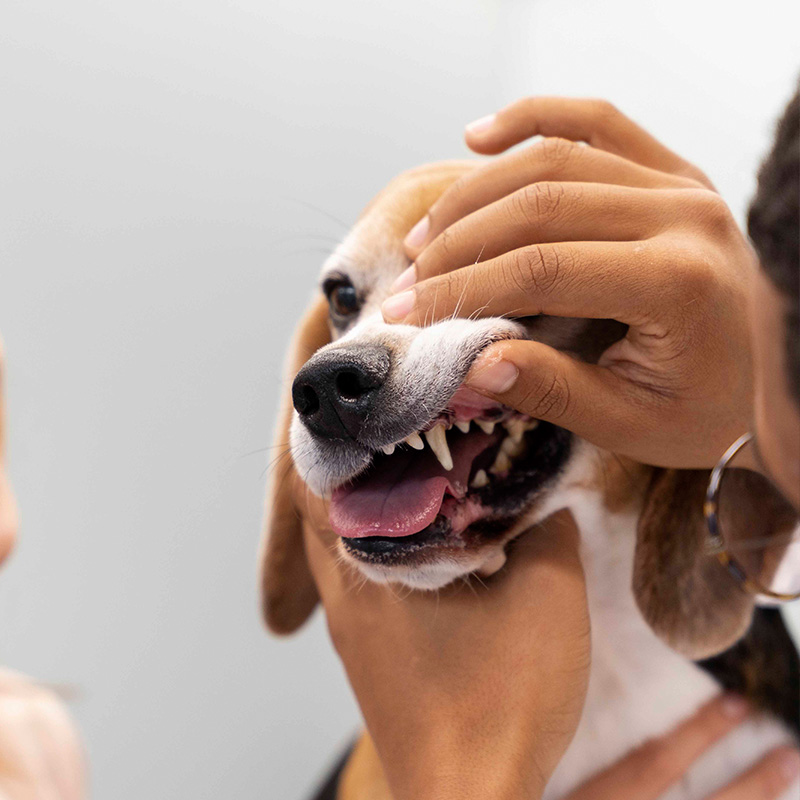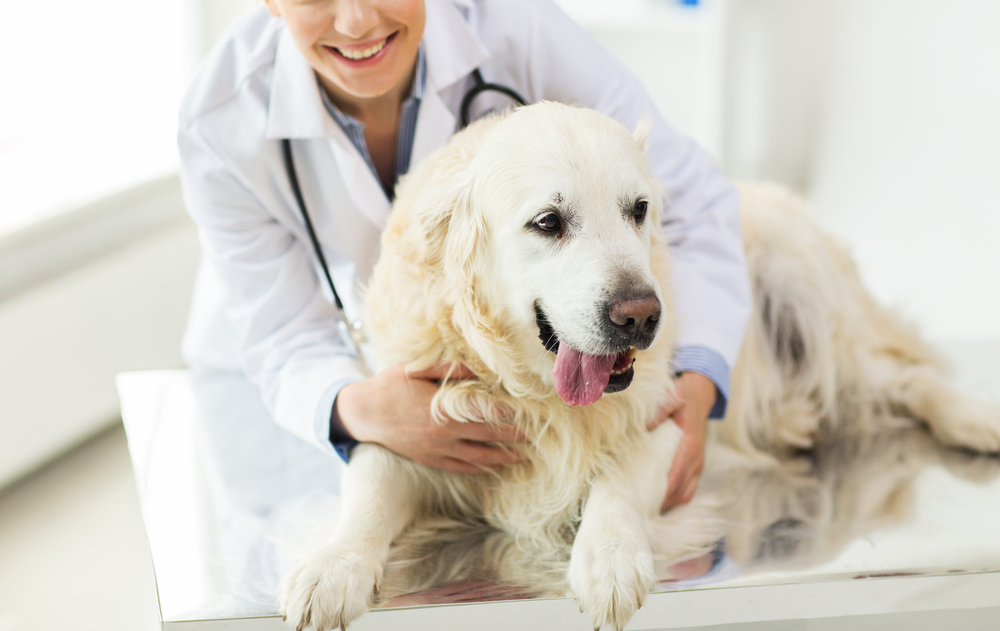Pet Dentistry
High-quality dental care is a must for your pet’s health, especially since bacterial infections below the gum line can migrate to other parts of the body, potentially causing severe organ damage.
Digital Dental X-Ray Technology
Did you know dental care is essential to your pet’s health? More than just giving your companion a brighter smile, constant dental diagnosis and treatment are essential to keeping pets free from a wide range of diseases and health issues.
To safely get a full view of the interior of your pet’s gums, teeth, and jaw, our team at Radnor Veterinary Hospital is proud to offer digital dental X-rays as a fast, safe, and non-invasive diagnostic tool.

Benefits of Digital Dental X-Rays:
- Speedier processing: Unlike film radiographs, images taken by digital X-rays can be viewed almost instantly on a computer monitor. This lets our staff analyze the X-ray right away or promptly re-take the image if necessary.
- Higher quality: Digital X-rays produce images with much higher quality and detail than film-based X-rays, enabling our veterinarians to more reliably catch potential issues as early as possible.
- Safer technology: Digital X-rays use less radiation than film-based ones, resulting in a safer procedure for pets and veterinarians alike.
- Easier sharing: Sharing a digital X-ray with another veterinary consultant is as simple as emailing the image file. If you ever have to switch veterinarians, this convenience could come in especially handy for all concerned.
Radnor Veterinary Hospital serves Wayne, Plymouth Meeting, King of Prussia, Bala Cynwyd, Norristown, Bryn Mawr, and Paoli PA pets. Our digital dental X-ray and other diagnostic techniques will reveal any problems that might require treatment in their early stages, enabling our veterinarians to administer the most effective, least invasive care possible. If you want your faithful companion to get the full benefit of modern veterinary dental technology, call today at (610) 687-1550 to schedule a dental wellness evaluation.
Pet Dentistry
Imagine what your mouth would feel like if you never brushed your teeth or went to the dentist. For many dogs and cats, this is a painful reality. According to the American Veterinary Dental Society, more than 80% of dogs and 70% of cats have dental disease by the age of 3. Dental (or periodontal) disease is the most frequently diagnosed health problem in pets.

Common Signs of Dental Disease Include:
- Yellow or brown buildup (tartar) on teeth
- Red, swollen, or bleeding gums
- Bad breath
- Excessive drooling
- Changes in eating or chewing habits
- Pawing at the face
- Loose teeth
- Depression
Even if your dog or cat doesn’t have these symptoms, we recommend that a veterinarian evaluate your pet’s dental health at least once a year. Bacteria and food debris accumulate around the teeth and, if left unchecked, will lead to the deterioration of the soft tissue and bone surrounding the teeth. This decay can result in irreversible periodontal disease, tooth loss, and possibly expensive oral surgery.
Dental disease can also affect other organs in the body. Bacteria in the mouth can get into the bloodstream and cause serious infections in the kidneys, liver, lungs, and heart. If these problems aren’t caught and treated quickly enough, they can result in death. A physical exam combined with appropriate laboratory work can determine if infection in the mouth has spread.
Schedule your pet’s dental exam today! We can also help show you how to brush your pet’s teeth and recommend foods and treats that will help combat plaque and tartar buildup.

